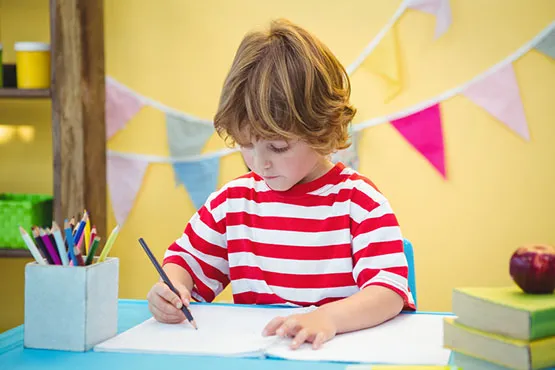Education / Wednesday, March 6, 2019
Developing Your Child’s Writing
In order to write, children must have a combination of mental and physical development. Children need the skills of concentration, memory, and language. They physically must have the strength and the use of muscles in their fingers and hands. Here is an outline of the most important stages of your…
Read the post :Developing Your Child’s Writing
